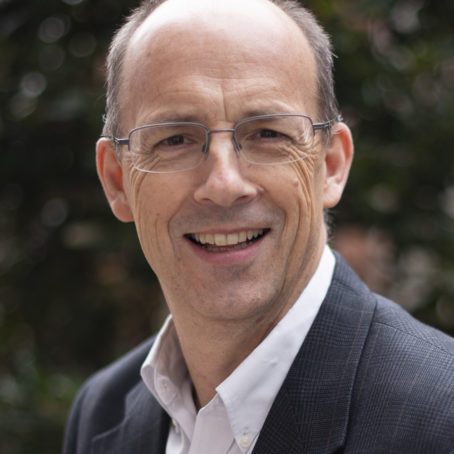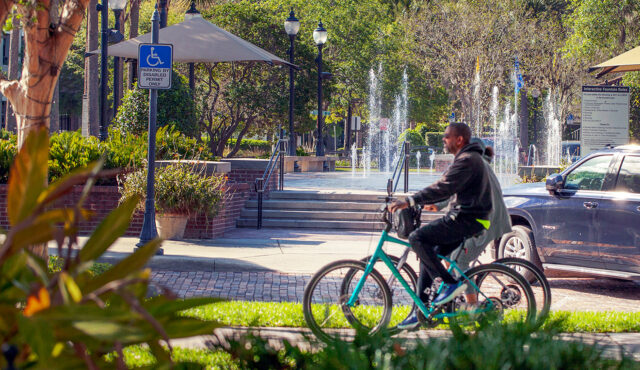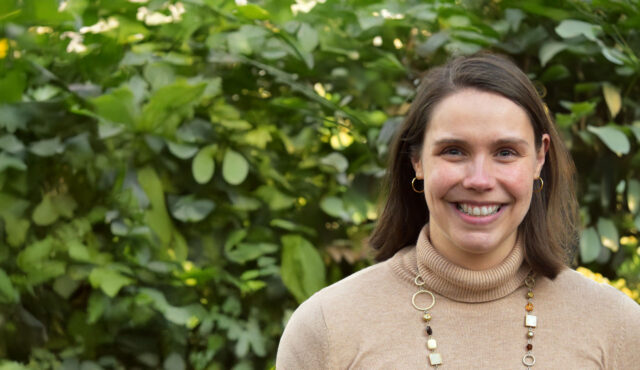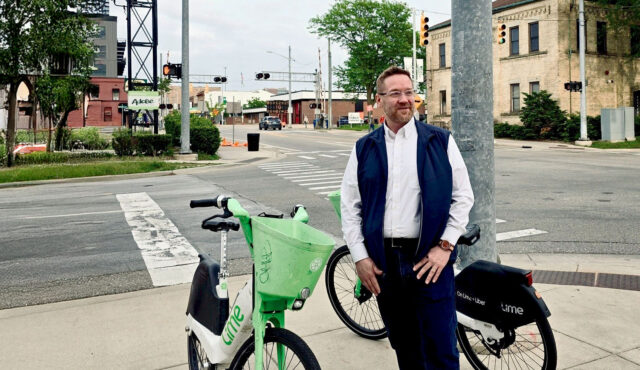
Thirty-five years ago this month, the Geelong Bicycle Plan was the talk of the legendary Velo City International Cycle Planning Conference, hosted by the London Cycling Campaign in England. Geelong, an otherwise forgettable town outside Melbourne, Australia, presented their 1977 bike plan, which was built around the four Es of Engineering, Education, Enforcement, and Encouragement.
As a recent graduate, prepping for an interview for my first job in this field, I read all about the conference and gathered that this approach had quickly influenced bicycle planning globally. People specially loved “encouragement” because – as it turned out – that was new and unique to the world of bicycling, and spoke to the need to actively promote riding a bike for everyday travel.
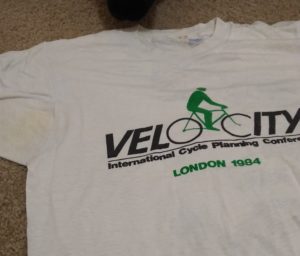
I organized my work around these four Es from that point on. I discovered that three of the Es also dominated traffic safety, and that from as early as 1925, people in the transportation world had made engineering, education, and enforcement the essential pillars of the profession. I helped develop the Bicycle Friendly Community program at the League of American Bicyclists, built again around the Es, although we did add a 5th (evaluation), and consciously integrated equity across all elements of the program.
That all changed for me about five years ago, though, as the Vision Zero movement started to harness the power of emotion in the United States and debates around climate change and autonomous vehicles raised awkward ethical questions that can’t be answered by manuals or formulae.
Riding to work on my very first day at Toole Design four years ago, I saw the immediate aftermath of a near-fatal crash at a trail/roadway crossing. It was immediately obvious what had happened, and that it was bound to happen again. The half-hearted, week-long, police enforcement that followed, aimed exclusively at people riding bikes, was an inadequate and misguided response.
Sure enough, within a year, a cyclist died at that very same location. And yet, the police doubled down after the second crash – even going so far as to publicly criticize temporary engineering fixes – because they could only see an enforcement problem needing an enforcement fix.
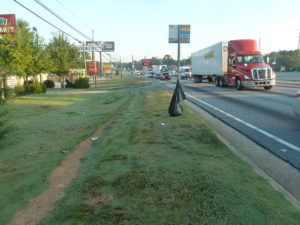
That’s when I realized that while the traditional Es are still critical disciplines and professions, it’s this siloed worldview that was actually hampering our ability to tackle safety and other problems. Working in cities like Jacksonville, FL and the Atlanta region highlighted the folly of education and enforcement campaigns around pedestrian safety that try to shame people into using non-existent or totally inadequate infrastructure, on roadways where we know full well that the design will result in crashes that kill people. Those designs aren’t ethical, but they meet code. The campaigns meant to fix the deficiencies show a total lack of empathy. Fundamentally, we are dealing with an inequitable transportation system.
It’s true that I became obsessed with E words. Experience, environment, equality, emotion, energy, and economics all came on and off the list. My colleagues at Toole Design had a lot of suggestions and some great discussions about all of these and more – and we’ll return to this topic later – that helped crystallize three critical things.
First, ethics, equity, and empathy are not rigid disciplines or professions. They reflect emotions and perceptions and principles that keep asking the question “why?” and demand solutions that are focused on outcomes, not output.
Second, the words themselves are less important than the discussion of values that they inspire. We are moved to create a more just society in which people can move freely and safely whatever mode of travel they choose, where transportation is just a means to end, not an end in itself. People are our focus.
Third, this is not a marketing gimmick, and not just about Toole Design. Yes, we appreciate Jennifer Toole’s authentic, inspiring, and courageous commitment to the values embodied in ethics, equity, and empathy because, after all, her name is on the door. But as transportation professionals, we must change our entire industry if we are to ensure that the communities in which we work have safe, accessible, affordable options for all.
We do not have all the answers – we invite you to join us on this journey and to be part of the conversation. Please use the resources we’ve started to compile here to start a discussion in your offices, with your clients, and perhaps even with your competitors about these critical issues. To move our profession forward, we must start with our values. And we need to start now.
Bill Schultheiss on Ethics Tamika Butler on Equity Kristen Lohse on Empathy
